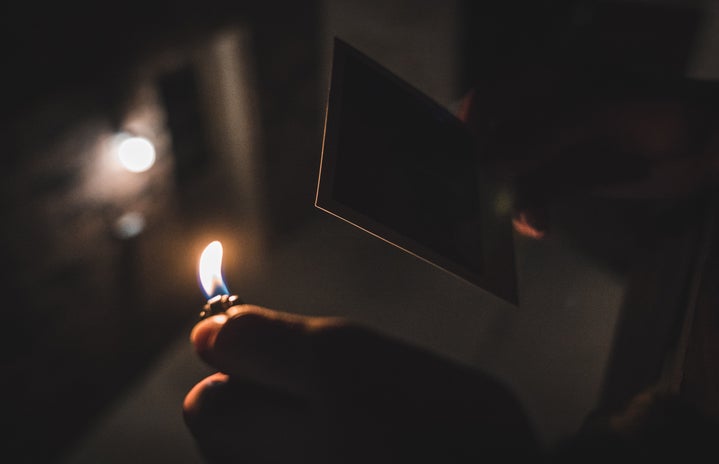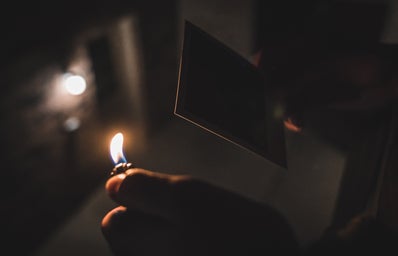Hayley Williams has done it again. After much anticipation, the Paramore frontwoman released her sophmore studio album FLOWERS for VASES/descansos on February 5th 2021. While self-isolation has most artists susceptible to writer’s block, Williams’s solitary confinement has resulted in a deluge of creativity. Her debut solo album, Petals for Armour, was released just last year on May 8th 2020 and received much praise for its experimental style—encouraged by producer and Paramore guitarist Taylor York—and multi-faceted approach to taboos like depression, therapy, trauma and female suffering, just to name a few. FLOWERS for VASES/descansos, on the other hand, is a stripped-down collective of melancholic inner thoughts. In just two albums and twenty-nine tracks, she has conquered the art of expressing heartbreak through two distinct lenses: a liberation of self-empowered rage in Petals, and in her newest record, an emotionally candid introspection. In this ballad-clad album Williams brought a new meaning to “solo” as she wrote and performed all the vocals and instrumentals in the comfort of her Nashville home studio.
To preface, there couldn’t be an appropriate title for a record consisting of a grievous whirlwind of unfiltered emotions: it is a reflection of its broader purpose. During a Twitter Q&A session on Valentine’s Day, Williams reveals that she had intended on singularly calling the album “Descansos,” the Spanish word for “rest” also referring to wooden crosses used as roadside memorials which in this case, symbolically mark all the trying times in a woman’s life. The idea derives from Dr. Clarissa Pinkola Estés’s book Women Who Run with the Wolves: Myths and Stories of the Wild Woman Archetype, a collection of tales of the archetypal “wild woman.” She writes, “women have died a thousand deaths before they are twenty years old… They have hopes and dreams that have been cut off also […] Anyone who says otherwise is still asleep. All that is grist for the mill of the descansos.” The metaphor also indicates a moment in which Williams lays things to rest and faces her battles. For that reason, it was chosen as the latter part of her album title as well as the namesake of track 13, a meditative instrumental melody. On Twitter, she tells a fan that the song (whose original title is “Baby in the Bathtub”), was born with lyrics, though she ultimately “loved the music more than the words and decided to use it as a significant moment on the album in which she ‘lays things to rest.’ “As for the first part of the title, it was conceived the moment Williams noticed that the last grocery item on her list was “flowers for vases,” resulting in a sort of personal epiphany: “I need to learn how to not hold on to dead things. so I threw out all the dead flowers, replaced them with living.” And that’s exactly what she did. She purged herself of all her insecurities, unresolved sorrows, and late night thoughts through music. Though the vast majority of her music is fueled by anger further enhanced by York’s fierce guitar riffs, her latest record is minimalist, thus highlighting her stunning vocals and exceptional songwriting abilities. In solitude, Williams plunged into a state of internal consciousness.
The opening track, “First Thing to Go,” is a dreamy ballad voicing the harsh realities of the dissolution of a relationship and holding on to its last remnants. Similarly, “My Limb” personifies an amputated limb as a former lover. As revealed by American Songwriter, its personification of an amputated limb takes inspiration from the Bible: “And if thy right hand offend thee, cut it off, and cast it from thee: for it is profitable for thee that one of thy members should perish, and not that thy whole body should be cast into hell,” reads Matthew 5:30. The first line, “If you gotta amputate, don’t give me the tourniquet” voices an overarching theme of the album, which delineates the heart-wrenching process of letting go, making this song Williams’s pièce de résistance. However, the biological allusions don’t end there. “Asystole,” better known as a cardiac flatline, indicates a separation between her head and her heart, whose “potion devotion” consumes her whole. “Whether it’s with the band, whether it’s in a relationship,” she says. “I can’t see the beginning and the end of myself and the other. And that is what ‘My Limb’ is about.” Her lyrics suggest that her visceral tendency to keep hold of the past can often be self-defeating, though she is perpetually working at drawing the line between cherishing relationships damaged beyond hope and complete oblivion.
The theme of eternal longing is another one that is omnipresent in the record. “Over the Hills” (a personal favourite!) exposes Williams in a contemplative state while taking her morning medication (presumably antidepressants), all while wondering how her former partner is doing without her. Likewise, “HYD” (How You Doing?) conveys the same message, though it shines a light on the way in which the end of a relationship only fades unpleasant memories while romanticizing others: a notion beautifully expressed in “First Thing to Go,” with the line “why do memories glow the way real moments don’t?” In an interview with American Songwriter, she admits that her “nostalgic, sappy, and sentimental” personality often eats her alive: “I tend to paint my memories, even bad ones, in this rose-colored tint that everything was actually so romantic,” she says. “I have to remind myself that things are in the past for a reason, or yeah, something might have been really sweet but look where you are today. I create this more beautiful setting for some of my life’s hardest moments. That can get a little sticky.” Yet, she doesn’t reject her eternal optimism per se. Williams draws inspiration from none other than Dolly Parton, who spoke about keeping a heart’s throbbing soft and rather strengthening the muscles around it in Brene Brown’s Unlocking Us podcast. “I’m still learning how to strengthen those muscles around my heart, which give me boundaries and the means to discern certain situations,” she explains. As a creative soul, she does not renounce being a hopeless romantic, and instead, uses music as a means to alleviate her heavy heart.
Though “getting over someone” makes the ordeal sound easy, Williams embraces her lingering heartbreak wholly in this record. “Trigger” speaks on false hope and submission to a toxic relationship. She uses a gun as a metaphor for her former lover’s dominance over their relationship, in which she was the trigger. This implies that amid her relationship, she was too enamored and thus blinded to feel the degree to which she was debased. The folk-inspired “Wait On” expresses the difficulty in accepting the end of a relationship, and a series of constant delusions and fantasies surrounding its revival. In this song, she depicts herself as a flightless bird who put herself in a constant state of pain to please her ex-lover. Next, “No Use I Just Do” is a harrowing track about Williams’s emotional incapacity to have affection for anyone but her former partner, for her feelings are far beyond the superficial.
Williams also opens up a great deal about her mental distress and consequent unhealthy coping mechanisms in the aftermath of her relationship. After her 2017 divorce to Chad Gilbert, the guitarist of pop-punk band New Found Glory with whom she shared a decade-long relationship and one year of marriage, Williams has been fighting a long and hard fight against depression. In “Good Grief,” she reveals that her dispirited state of mind took a toll on her ability to take care and nourish her body. She also comes clean about her alcoholism in “Just a Lover”: “I’ll be singing into empty glasses/No more music for the masses.” The song suggests that she once considered leaving Paramore to start a family with her then-husband, only to be reduced to a lover many years into the relationship. On the flip side, “Find Me Here” speaks on allowing a loved one to fight their own battle because there are things that even love cannot fix. Meanwhile, “KYRH” (Keep You Right Here) is a simplistic ballad expressing the definition of a healthy boundary between herself and her ex-lover, with the implication that Williams needs to keep him at a distance, though not too far away.
Of all the songs on the album, “Inordinary” is arguably the most intimate one of all. In fact, it is one of Williams’s favourite songs on the record. It tells her story of fleeing Meridian, Mississippi to Franklin, Tennessee at age fourteen with her mother to escape not one, but two divorces. “Came home from school one afternoon, she was waiting in the car for me,” she sings, “she said don’t worry.” Her big move led to the formation and eventual worldwide success of Paramore after meeting fellow band members Josh and Zac Farro in middle school. At the age of 16, the band had fully taken off and since then, Williams’s life was anything but ordinary. On the track, she fantasizes about an “ordinary” life in place of the unconventional lifestyle she has been leading from such a young age. In her American Songwriter interview, she expands on her understanding of generational trauma after having witnessed divorce many a time in her family. Thus, in spite of being jaded in nature, she gave in to a committed long-term relationship (as expressed in “The Only Exception”–an all-time classic!) and fought hard to make it work, only for it to end in a dark place. “It felt like it was a sickness that ran in my family, like a genetic disease,” she says. In an interview with Apple Music’s Zane Lowe, she notes that the latter concept is being increasingly recognized through the sensibilization of systemic racism. She then goes on to voice the trauma experienced over the course of a woman’s life, likely referencing Estés’s text. Today, she is working through recovery from both her ex-husband as well as her inner demons, both through therapy, which she has committed to since the end of Paramore’s After Laughter tour in September 2018, as well as finding comfort in the art of songwriting. In fact, the record “happened” unintentionally and naturally in the process of emotional cleansing and “unlearning” lessons 31 years into her tumultuous life.
In her conversation with Zane Lowe, she reveals that if she had toured Petals for Armour, her latest album would likely not have been turned to fruition. Williams’s time spent in quarantine provided her an opportunity to dive deep into her inner dialogue and paint “as good of a picture of heartbreak that I can do,” she laughs. After some time into the pandemic, the “novelty of being home wore off” and she admits to have thought to herself: “shit, here comes the quiet.” That is to say, she was “scared of what [she] might find” in the midst of inescapable self-discovery. Although the year 2020 and all its chaos blurs the line between what is or isn’t a universal struggle, Williams finally came to terms with her emotions and found comfort in knowing that others are also enduring such hardships. She also confesses that it’s not easy for her to listen to the album, hence only ever having listened to it once. “I lived those feelings. I don’t know if I need to whip myself with them over and over again,” she says. All that matters is that she grew to accept that healing is an arduous process which must be confronted and not ignored. “I’m still here. The sun is shining. I can go outside and put my feet on the ground,” she reminds herself.
Long story short, FLOWERS for VASES/descansos is worth a listen. Or two. Or three. Or, if you’re anything like me, you’d play it on loop until you grow numb to its soul-crushing lyrics. Its utter simplicity leaves some room for its words to shine through and resonate with all its listeners. Even if you can’t personally relate to the emotions conveyed in her songs, there is no shadow of a doubt that this record will have you feel cathartic in a way you’ve never felt before. Not to mention, the gorgeous album art features Williams in a jacuzzi filled with red-tinted water, which she claimed to be “def [her] most ridiculous quarantine purchase.” In response to a fan who asked her a question amid a Twitter Q&A asking “did you write more songs for FFV that weren’t eventually included in the tracklist and if so are you gonna use them either for a future solo project or for a Paramore album? #flowersforvases,” Williams responds, “there are more songs, yeah, but I’m not planning on another solo album. and I’m not sure if they’d be great for Paramore. I’m ready for the next Paramore album. let’s go.” As much as I loved solo Hayley, the next Paramore era is well approaching, and I’m so ready.
Information obtained from:




